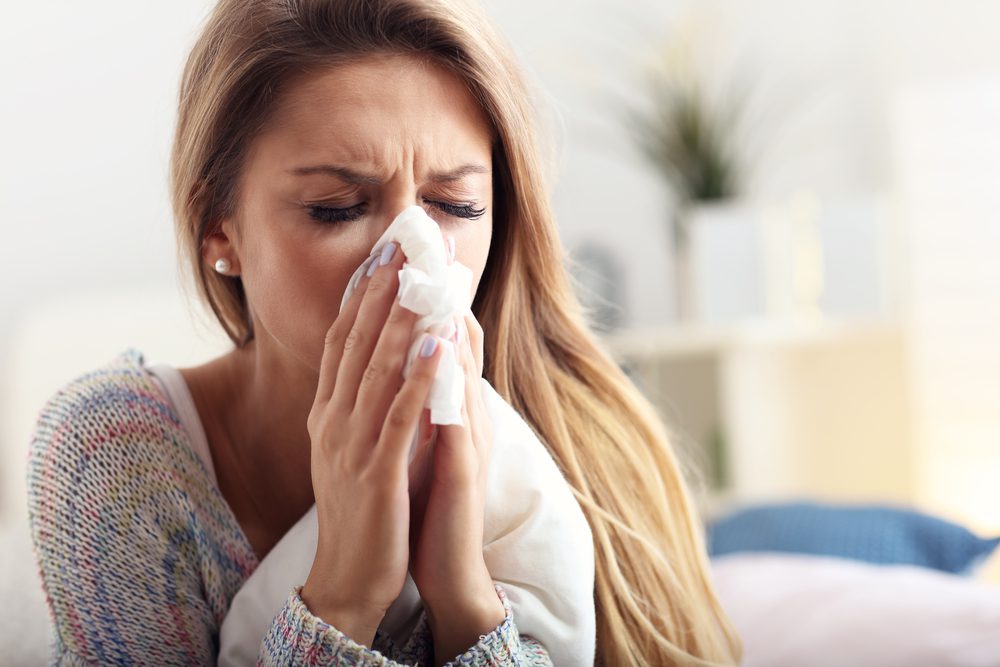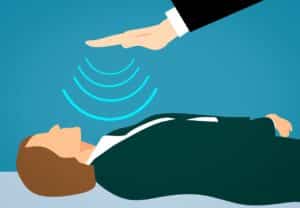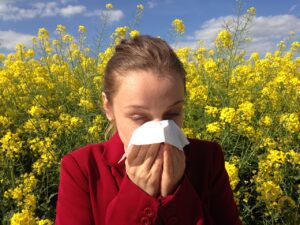A runny nose is a common symptom of many illnesses, including allergies, colds, and flu. It can be uncomfortable and annoying, making it difficult to breathe and causing frequent nose blowing. While a runny nose can be a nuisance, it is usually not a serious health concern. However, it can be contagious and may lead to other complications if not treated properly.
There are several ways to stop a runny nose, depending on the underlying cause. Over-the-counter medications, such as antihistamines and decongestants, can help reduce symptoms and alleviate discomfort. Additionally, home remedies like saline nasal sprays, steam inhalation, and drinking plenty of fluids can also be effective in treating a runny nose. However, it is important to consult with a healthcare professional if symptoms persist or worsen, or if there are other concerning symptoms present.
5 Home Remedies for Runny Nose
There are several home remedies that can help alleviate the symptoms of a runny nose. These remedies are easy to implement and can be done in the comfort of one’s own home.
Hydration
Staying hydrated is one of the simplest yet effective ways to treat a runny nose. Drinking plenty of fluids such as water, herbal tea, and hot water with lemon can help thin out the mucus and reduce congestion.
Steam Inhalation
Inhaling steam can help relieve nasal congestion and reduce the production of mucus. One can take a hot shower or use a humidifier to create steam. Adding a few drops of essential oils such as eucalyptus or sage can also help ease the symptoms.
Spicy Foods
Eating spicy foods can help clear the sinuses and reduce congestion. Spices such as cayenne pepper, ginger, and garlic can help break up mucus and alleviate the symptoms of a runny nose.
Use of Humidifier
Using a humidifier can help add moisture to the air and reduce the dryness in the nasal passages. This can help alleviate the symptoms of a runny nose and reduce the production of mucus.
Nasal Irrigation
Nasal irrigation involves flushing out the nasal passages with a saline solution using a neti pot or a nasal spray. This can help remove excess mucus and reduce inflammation in the nasal passages.
Home remedies can be an effective way to alleviate the symptoms of a runny nose. By staying hydrated, inhaling steam, eating spicy foods, using a humidifier, and practicing nasal irrigation, one can reduce the production of mucus and alleviate the discomfort associated with a runny nose.
4 Medical Treatments for a Runny Nose
There are several medical treatments available for managing a runny nose. These treatments can help alleviate symptoms and improve quality of life. In this section, we will discuss some of the most common medical treatments for a runny nose.
Decongestants
Decongestants are a type of medication that can help reduce nasal congestion and swelling. They work by narrowing the blood vessels in the nasal passages, which helps to decrease inflammation and improve breathing. Decongestants are available in both oral and nasal spray forms.
Oral decongestants are available over-the-counter and typically contain pseudoephedrine or phenylephrine as the active ingredient. Nasal decongestant sprays, such as oxymetazoline or phenylephrine, are also available over-the-counter. However, it is important to note that nasal decongestant sprays should not be used for more than three days in a row, as they can lead to rebound congestion.
Antihistamines
Antihistamines are a type of medication that can help reduce allergy symptoms, including a runny nose. They work by blocking the effects of histamine, a chemical released by the body during an allergic reaction. Antihistamines are available in both oral and nasal spray forms.
Oral antihistamines, such as loratadine or cetirizine, are available over-the-counter and can help relieve allergy symptoms. Nasal antihistamine sprays, such as azelastine or olopatadine, are available by prescription and can also help reduce allergy symptoms.
Nasal Sprays
Nasal sprays can also be used to help manage a runny nose. Saline nasal sprays can help flush out mucus and debris from the nasal passages, which can help reduce congestion and improve breathing. Nasal steroid sprays, such as fluticasone or mometasone, can help reduce inflammation in the nasal passages and improve allergy symptoms.
Prescription Medications
In some cases, prescription medications may be necessary to manage a runny nose. Prescription antihistamines, decongestants, and nasal sprays may be more effective than over-the-counter options for some individuals. Additionally, prescription medications such as leukotriene inhibitors or immunomodulators may be used to manage chronic or severe allergy symptoms.
There are several medical treatments available for managing a runny nose. Decongestants, antihistamines, nasal sprays, and prescription medications can all be effective in reducing symptoms and improving quality of life. It is important to talk to a healthcare provider before starting any new treatment regimen to ensure that it is safe and effective for individual needs.
Preventing Runny Nose
A runny nose can be a nuisance, but there are steps that can be taken to prevent it from happening in the first place. Here are a few tips to keep a runny nose at bay:
Avoiding Allergens
Allergens are one of the most common triggers of a runny nose. To prevent this, it is important to identify and avoid the allergens that cause the reaction. Common allergens include pollen, dust mites, animal dander, and certain foods. If you are unsure of what is causing your allergies, consult with a healthcare provider for testing and advice.
Maintaining Hygiene
Good hygiene practices can also help prevent a runny nose. Washing hands regularly and avoiding contact with people who are sick can help reduce the spread of viruses that can cause a runny nose. Additionally, keeping surfaces clean and avoiding touching one’s face can help prevent the spread of germs.
Staying Healthy
Taking care of one’s overall health can also help prevent a runny nose. This includes getting enough rest, staying hydrated, and maintaining a healthy diet. The immune system plays a key role in fighting off infections and illnesses, so it is important to keep it strong.
Preventing a runny nose involves avoiding allergens, maintaining good hygiene practices, and staying healthy overall. By taking these steps, individuals can reduce their risk of experiencing a runny nose and enjoy better overall health.
When to See The Doc
In most cases, a runny nose can be treated at home using simple remedies and over-the-counter medications. However, there are certain situations when it is important to seek medical help.
If the runny nose persists or is accompanied by severe symptoms, it is important to seek medical help. A doctor can diagnose the underlying cause of the runny nose and provide appropriate treatment.








